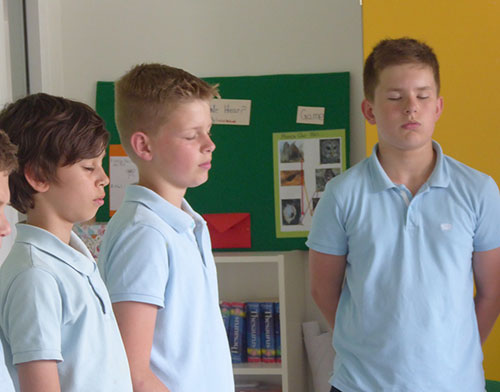
Michela Mantani worked at La Côte International School as Communications Manager from 2017-2020. Passionate about education and the impact that different learning styles can have on a child’s learning journey, she has been researching and writing about the various educational options available in the Lake Léman region since relocating here from London in 2008.
Michela obtained a First Class Honours degree in Modern Languages and Literature from the University of Florence before moving to London to start her career in publishing, where she also gained her TEFL (Teacher of English as a Foreign Language) Certification.
Originally from Italy, Michela is a Geneva-based freelance writer, blogger and mum to three children. Before moving to Switzerland in 2008, she worked at the BBC for many years as a TV Distribution Executive and at the Laura Ashley headquarters in Fulham as Product Development Technologist.
A CIM-certified professional, she's a design, food and travel enthusiast who tries to involve her children in everything she does. Since moving to Switzerland, she has taken up snowboarding, stand-up paddle and very much enjoys the outdoor lifestyle the Lake Léman region can offer.

By Michela Mantani, La Côte International School
Across the globe, one of the hottest topics in education at the moment is whether we should be teaching our children how to manage their emotional state and be in charge of their own wellbeing. In Asia meditation classes are on the rise to help students cope with stress levels and develop emotional resilience, while in Great Britain recent statistics have shown that an average of 3 children per classroom have mental health issues ranging from anxiety to burn-out, which may lead to low-level disruption.
As our youngsters lead increasingly stressful, over-planned lives, screen time and excessive stimulation have also been linked to the rise of mental disorders in children. The burning question on every educator’s mind at the moment is, without a doubt: “What can our schools do to help students regulate their emotions and improve their daily interactions with others?”
In recent years, a growing number of scientific studies have underlined the benefits of mindfulness exercises for students, based on solid evidence relating to the impact of mindfulness on adults, as well as encouraging indications on the positive impact that a regular practice of meditation and breathing techniques can have on children and young people.





